IOM YEMEN: AGAINST THE WINDS - Qasem’s Path to Resilience
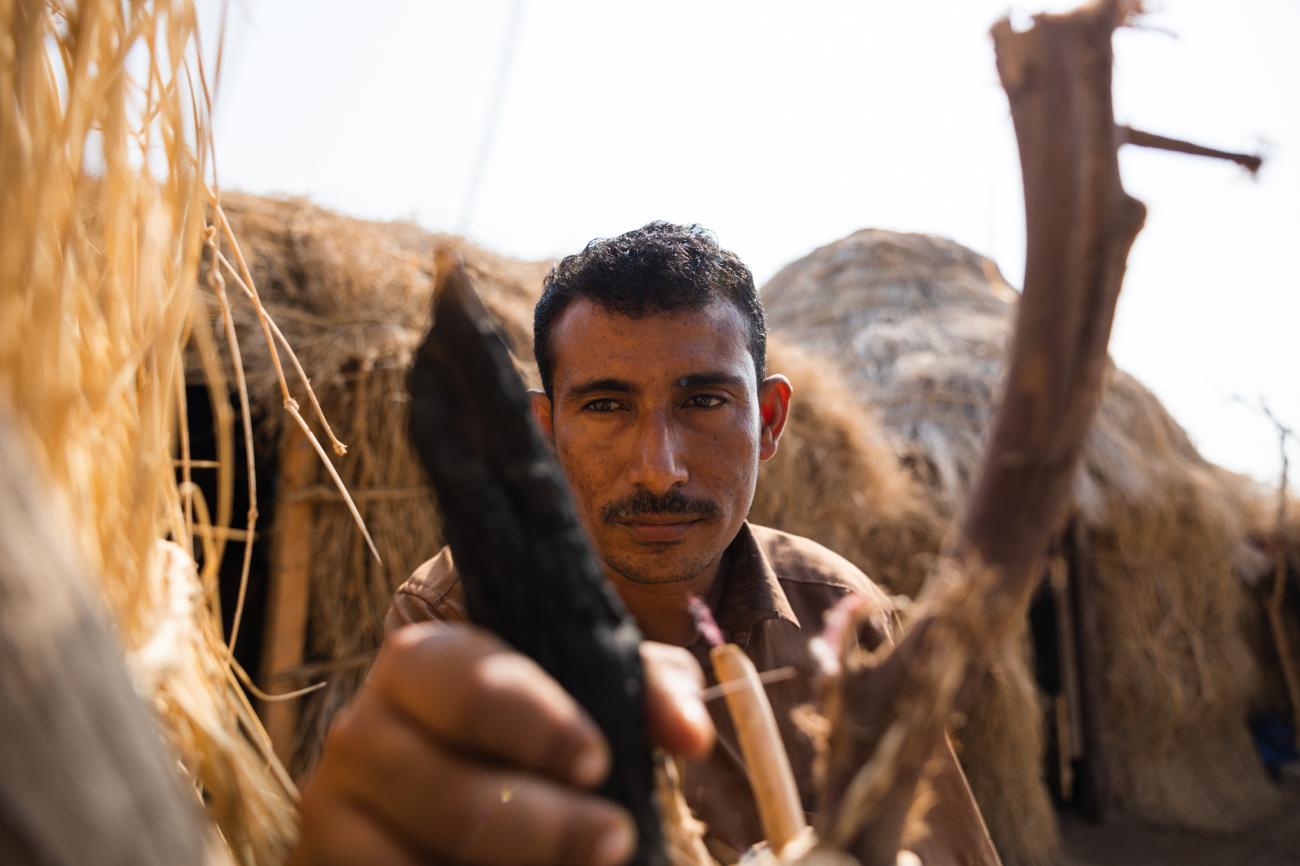
-
Most displaced people in Al-Khukhah, like 31-year-old Qasem, make ends meet working as fishermen or taxi drivers. Their livelihoods are hanging by a thread due to the collapsing economy of war-torn Yemen. When a fire engulfed his shelter, Qasem had to dig deep to recover. His journey reflects the resilience of over 4.5 million internally displaced people across the country.
Mokha, Yemen – Shortly after being displaced three years ago, Qasem found himself grappling with the harsh realities of life in a makeshift shelter in Al Khukhah District, located in Yemen’s Hadidah Governorate.
“We receive aid, but it’s not enough for our needs, and it’s definitely not enough for everyone who is displaced,” the father of five explains. “It’s a constant struggle.”
More than 4.5 million internally displaced persons (IDPs) are currently dealing with the aftermath of the country’s decade-long conflict. Over 80 per cent of Yemenis lack access to adequate food, water or shelter due to the economic crisis, leading to a surge in poverty and food insecurity.
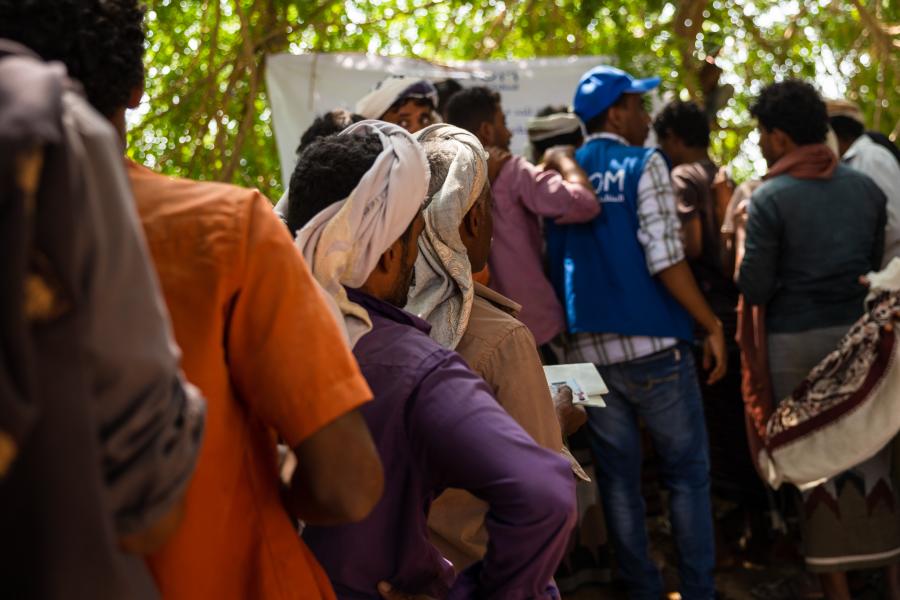
LIVING ON THE EDGE
Unable to access basic services such as health care and education, they depend on humanitarian assistance for survival. Living in basic shelters built from wood and straw, their sole refuge leaves them vulnerable to the elements and in dire need of support.
One day, upon returning to their shelter, Qasem and his wife, Aisha, faced a devastating incident. As she began preparing a warm meal for their children, a powerful and unyielding wind unexpectedly carried the flames into the straw walls of their fragile shelter.
“I tried putting out the fire immediately but couldn’t control it.”
As he began separating the shelter attached to his with the help of his neighbours to prevent it from catching fire, Qasem heard the screams of one of his daughters. “She was still trapped in the burning shelter. There was nothing I could do but run between the flames to save her. I picked her up and ran outside,” he recounts.
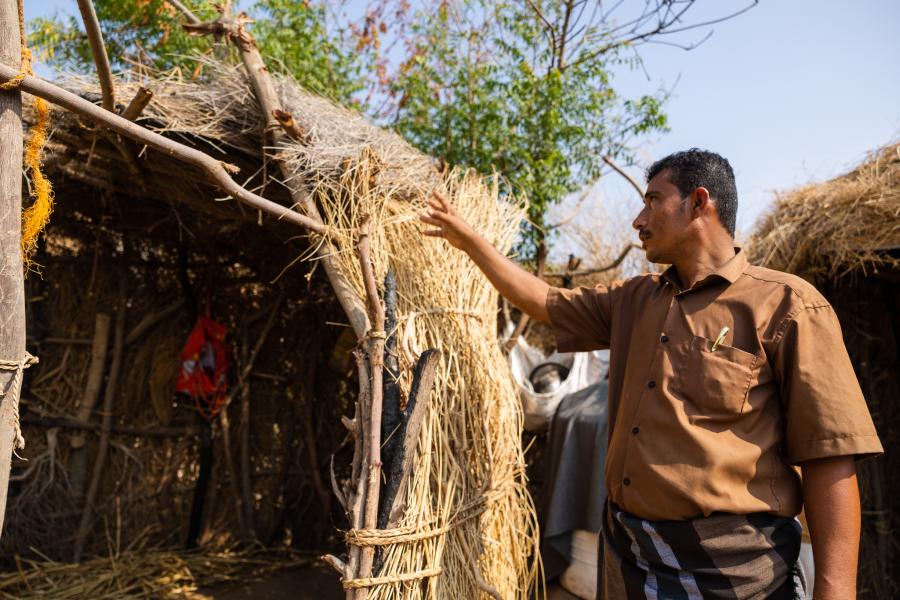
“Fortunately, we were able to escape the fire, but it made me realize that we lived in a dangerous environment. Cooking became a daily risk rather than just a chore.”
EMBERS OF HOPE
The family watched in panic as their only shelter was engulfed by flames, losing everything they owned. With nothing left, they had to begin anew without a home. Their cash, often kept by IDPs in shelters, was now gone. Determined to rebuild his life and support his family, Qasem started looking for a way forward.
With the collapse of the civil defense unit due to the ongoing conflict and the lack of a fire station or extinguishing refill center, the community had to devise sustainable ways to mitigate fire-related issues. After learning about the challenges and fire incidents faced by many displaced communities on the West Coast, IOM’s Camp Coordination and Camp Management (CCCM) team took decisive action.
To address their needs, IOM provided cash for kitchen assistance, supporting displaced families in Al-Khukhah to build safe cooking spaces and reduce the risk of fire outbreaks. This support resulted in an impressive reduction of over 90 percent in reported fire incidents within IDP sites.
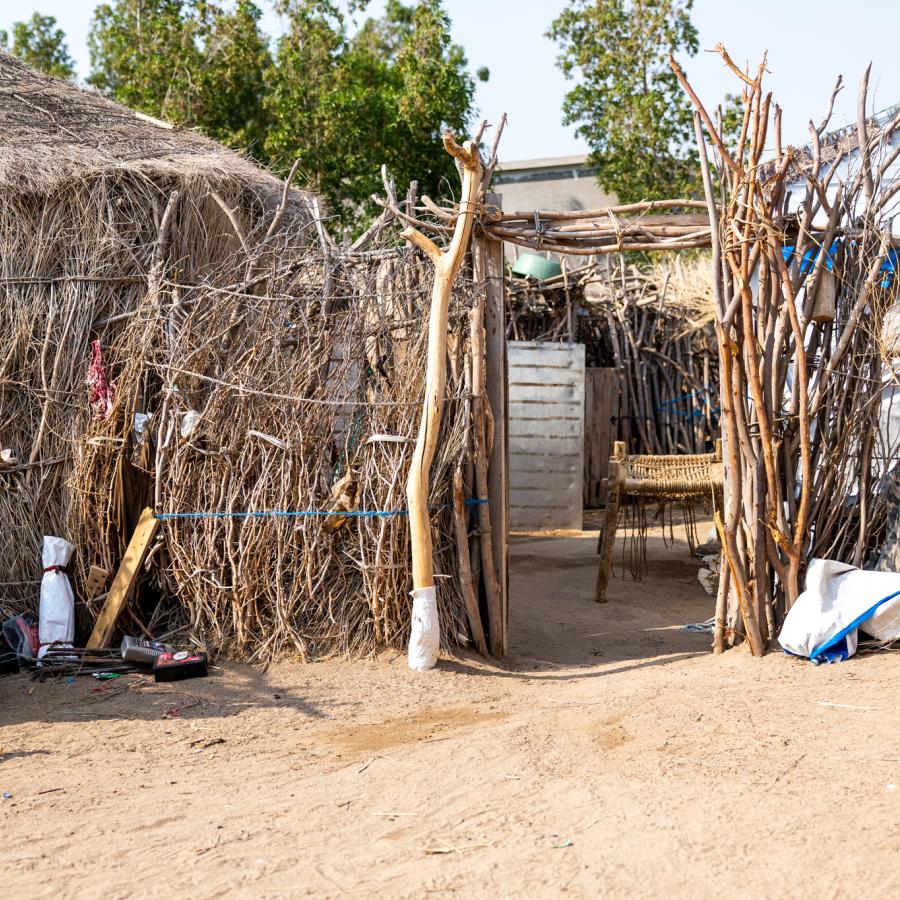
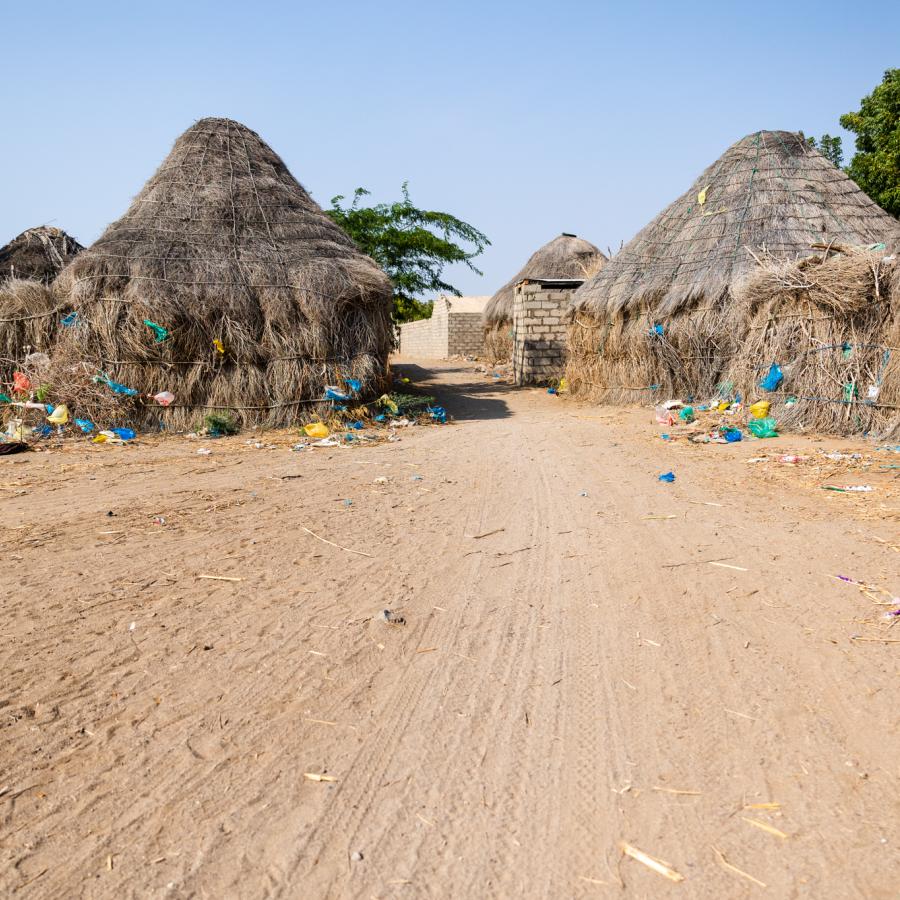
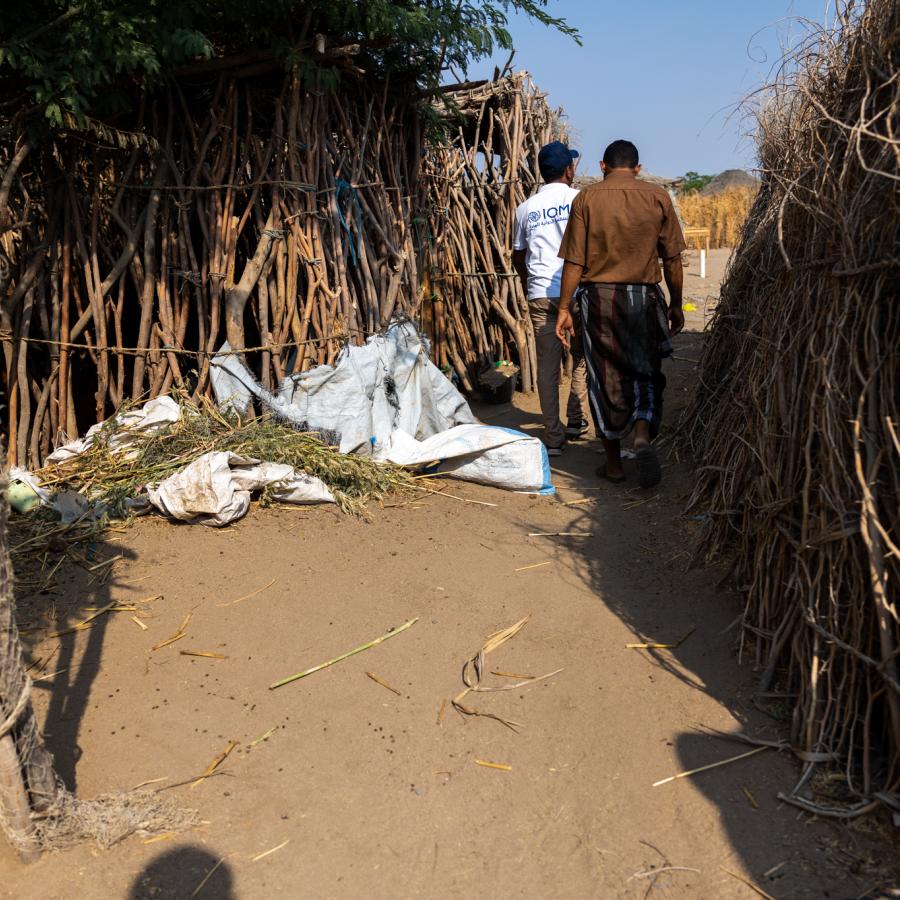
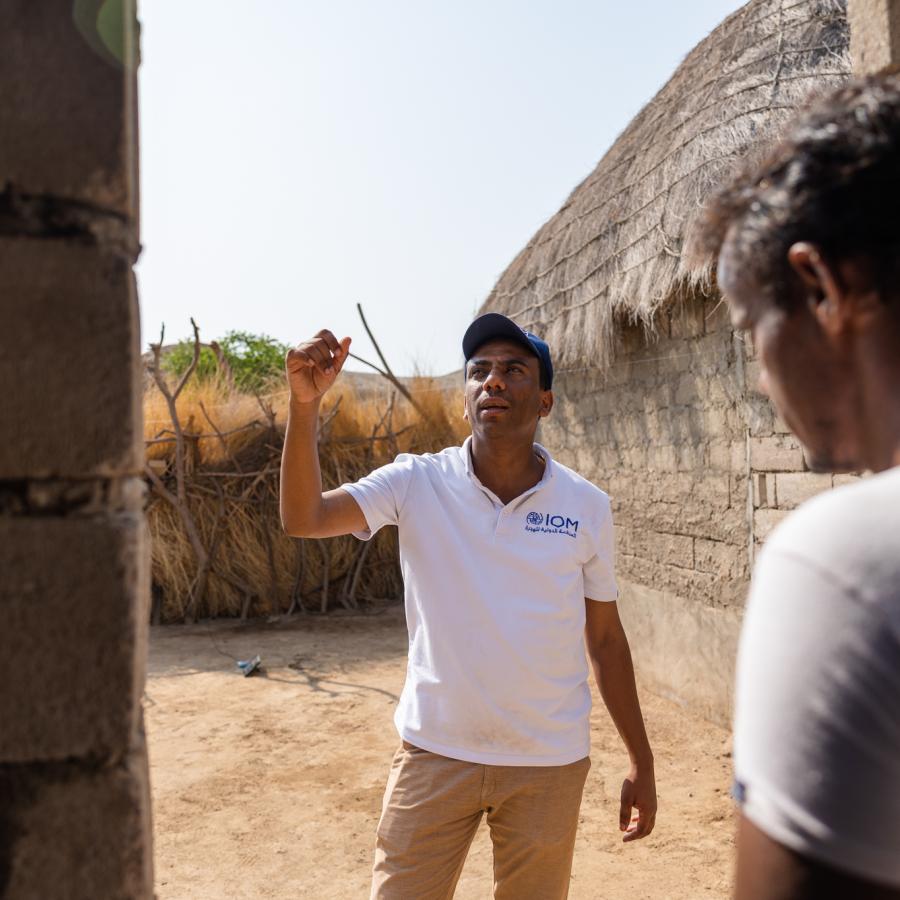
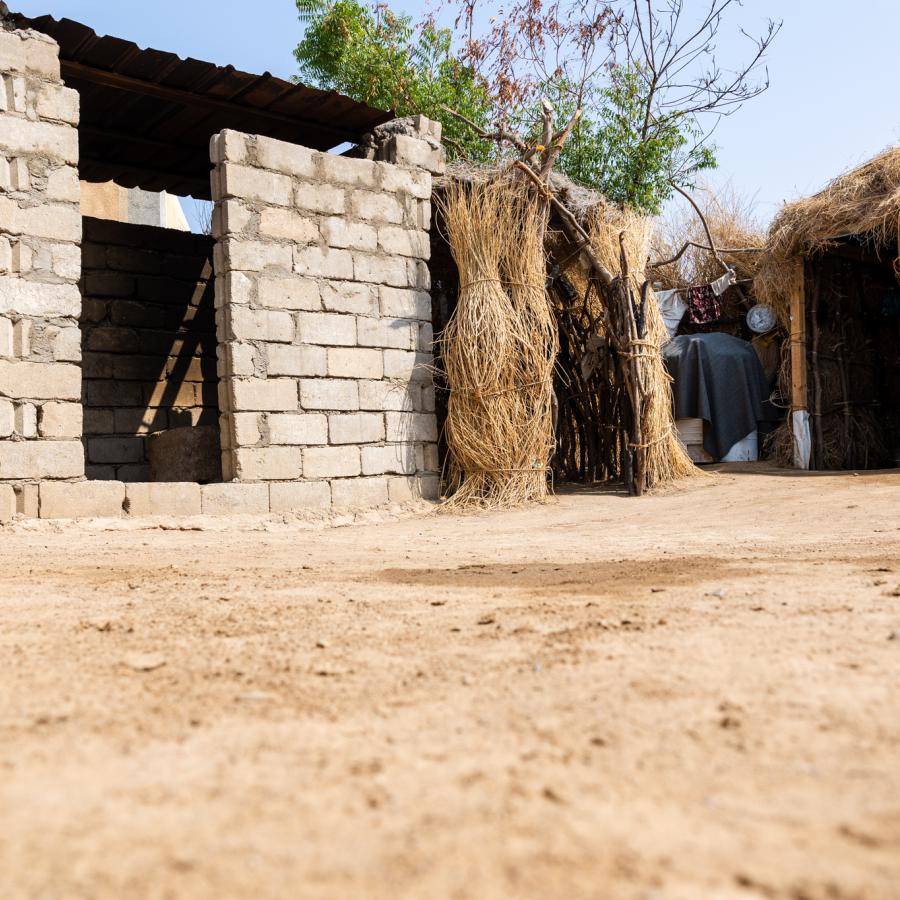
FIRE MITIGATION
The initiative created job opportunities for those displaced, injecting much-needed cash back into the communities and revitalizing the local market. Those displaced actively participated in constructing their kitchens under the guidance of the camp management team, ensuring compliance with safety standards.
The initiative sparked a renewed sense of community engagement and ownership, fostering a sense of self-reliance. Families became active contributors, embracing the project as a shared endeavour to rebuild their lives and ensuring the success and sustainability of the initiative.
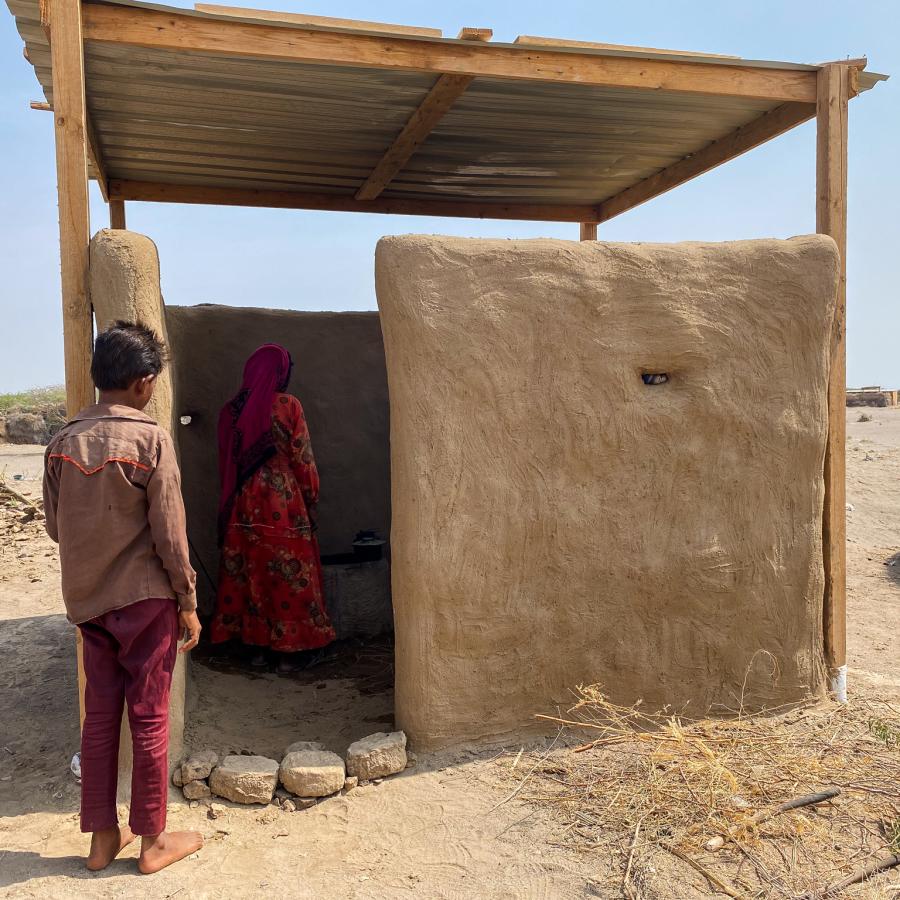
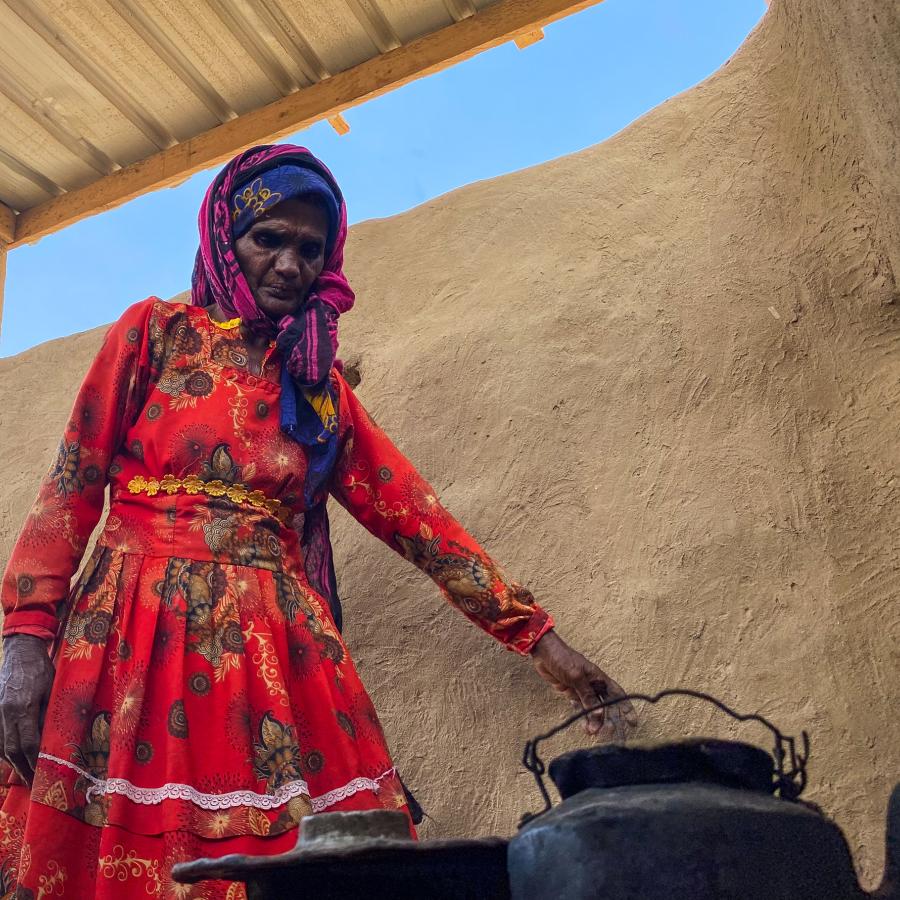
Soon, the improved kitchens became a lifeline. Families could now prepare meals three times a day, overcoming the constraints imposed by the heavy winds. The kitchens, once merely functional spaces were transformed into hubs of daily life, fostering a sense of normalcy amidst the challenges of displacement.
In 2023 alone, more than 1,100 displaced families benefitted from IOM’s safe kitchen initiative, enjoying a sense of security and safety that had long been unavailable. These kitchens were no longer just functional areas; they became spaces of safety and tranquility, allowing families to cook with peace of mind.
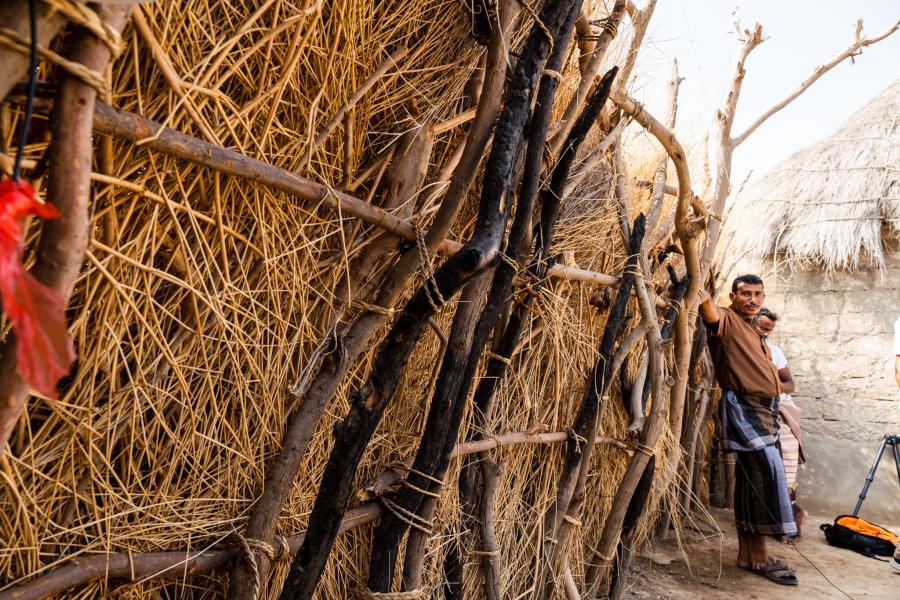
“We received more than just shelter that day; we now have a renewed sense of dignity and safety.”

